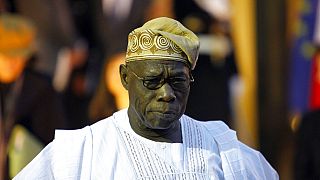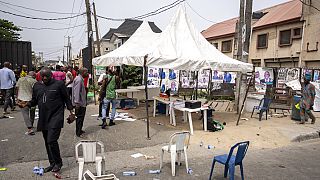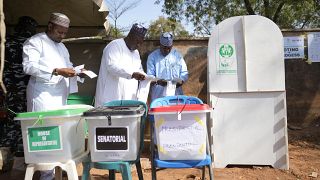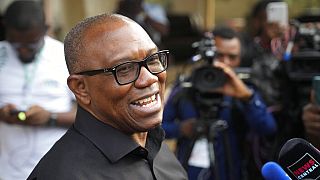Nigeria
Nigeria's general elections were on almost everyone's lips, Sunday (Feb. 26). The vote was mostly peaceful despite some cases of violence, delays and technical glitches.
However, the slow uploading of results online was starting to stir up fears of electoral malpractice. Voters waited anxiously in Lagos.
"We are anxious for the result because this election is going to determine Nigeria unity moving forward because whoever that comes as a president, he knows that he has a lot of work to do," businessman Yusufu Eshinuku said.
"I pray for Nigerians, something positive should happen to us."
Nearly 90 million voters were eligible to vote on Saturday for a successor to President Muhammadu Buhari, who is stepping down after two terms marked by worsening security and growing poverty.
The election pits former Lagos governor Bola Tinubu, 70, of the ruling All Progressives Congress (APC) against an old rival, former vice president Atiku Abubakar, of the Peoples Democratic Party (PDP), 76.
But for the first time since the end of military rule in 1999, a third-party candidate, Peter Obi of the Labour Party, has challenged the APC and PDP dominance with a campaign message of change.
Spread over more than 176,000 polling units, voters also cast their ballot for Nigeria's two houses of parliament, the National Assembly and Senate.
Committed voters
In Lagos and other cities, crowds stormed polling stations late on Saturday as electoral officials tallied the first results by hand and read out the counts before transmitting them to a central database.
"We just finished counting, but we need to make sure they upload the results," said Chizoba Onuoha, an IT manager, watching the count at her Lagos polling station.
In the southern oil hub of Port Harcourt, a dozen people were still at their polling unit after the counting had finished on Saturday, shouting at the electoral official to destroy unused ballots.
"The empty ballots, we want them to void them, so that they don't use them!" said Nkechi Njoku, 42, who sells fabric and said she had not left since arriving to vote in the morning.
"We are protecting our votes," said Robert Ihuoma, a 38-year-old data analyst standing next to her.
Votes were cast in Benue, Adamawa and Bayelsa states even as the counting of ballots ballots was underway Sunday in places where polls had closed, election observers said. Preliminary results were expected as early as Sunday evening.
Runoff scenario?
As of Sunday morning, results for the presidential election were not yet available on the website of the Independent National Electoral Commission (INEC).
Yiaga Africa, the country’s largest election monitoring body, said it was "deeply concerned with the delay."
The commission has 14 days to officially announce results, but an online tally could be made available in the next hours or days.
Despite the isolated cases of violence and technical problems, INEC remained confident about the electoral process.
"We have lost ballot boxes here and there... but we will continue to protect the process and we will continue to proceed courageously and ensure that we conclude this in a very free, fair and credible manner," said INEC's chairman Mahmood Yakubu.
The historically tight presidential election has some analysts forecasting an unprecedented runoff between the two frontrunners.
To win the presidency, a candidate must get the most votes but also win 25 percent in two-thirds of Nigeria's 36 states.
The competitive race has some analysts forecasting an unprecedented runoff between the two frontrunners if no candidate meets election requirements. It would have to be organised within 21 days.













01:06
Brazil launches major security operation ahead of BRICS Summit
01:09
Guinea presents draft for new constitution, referendum set for September
11:15
AI drones lead breakthrough against malaria in Africa [Business Africa]
02:18
Netherlands returns 119 artifacts looted from Nigeria
Go to video
Evacuations begin: African citizens caught in Israel-Iran crossfire
02:08
Gunman attack in north-central Nigeria: death toll climbs to 150